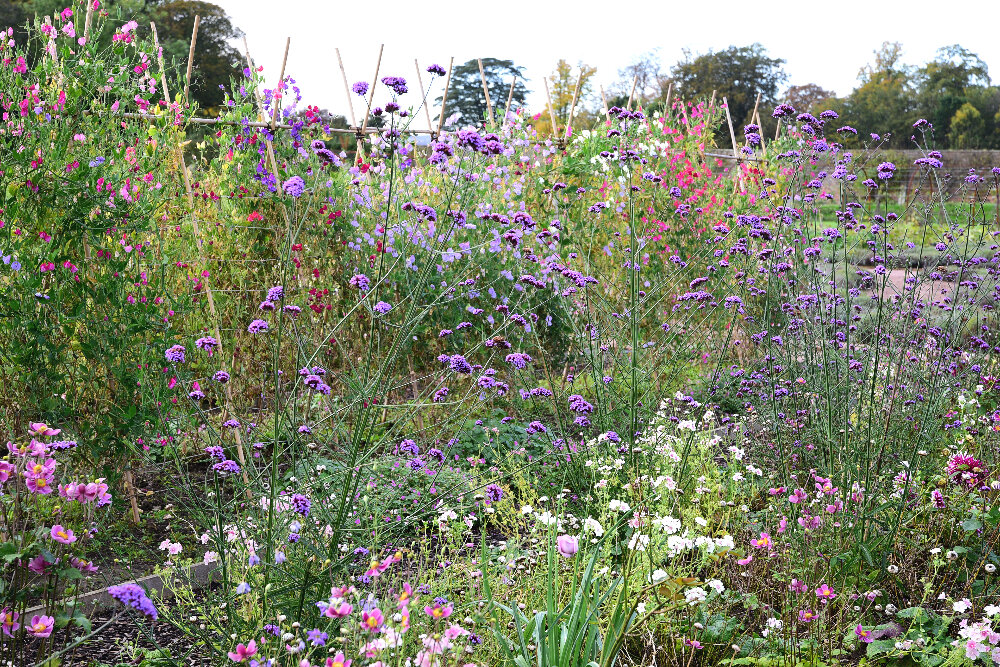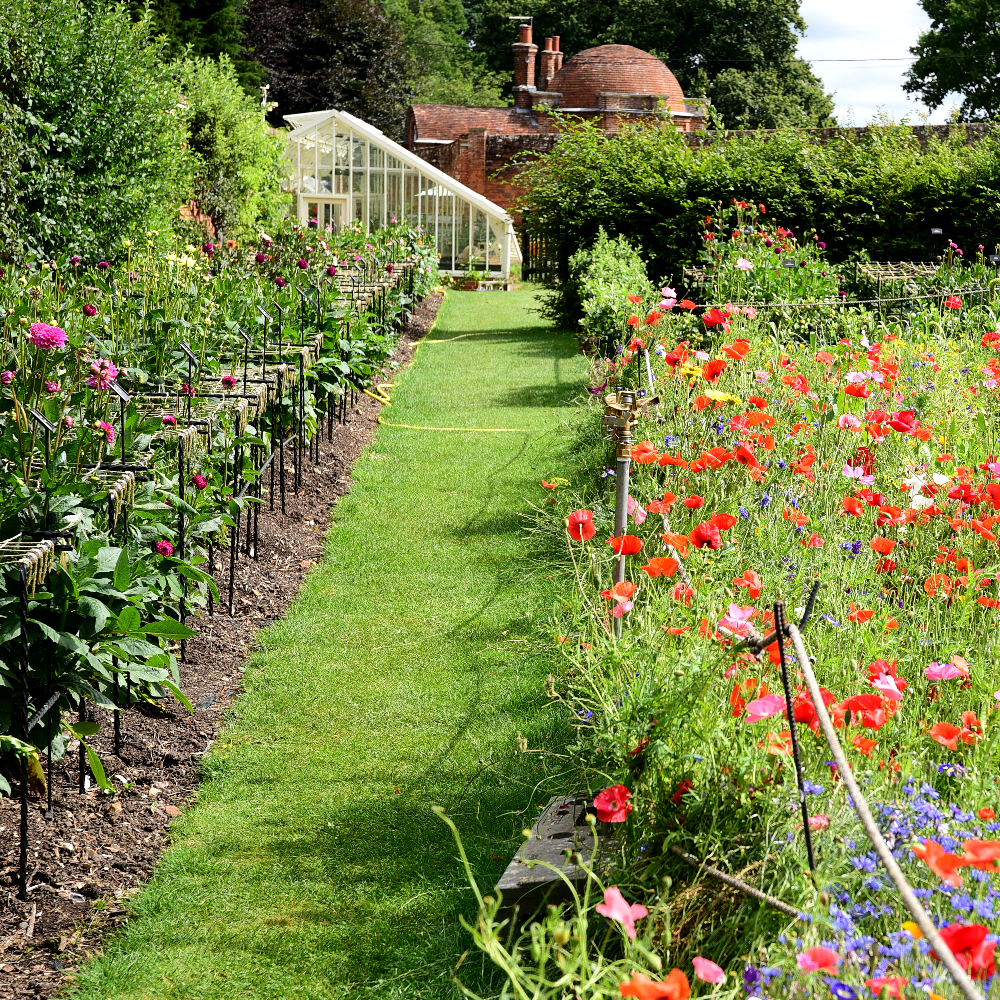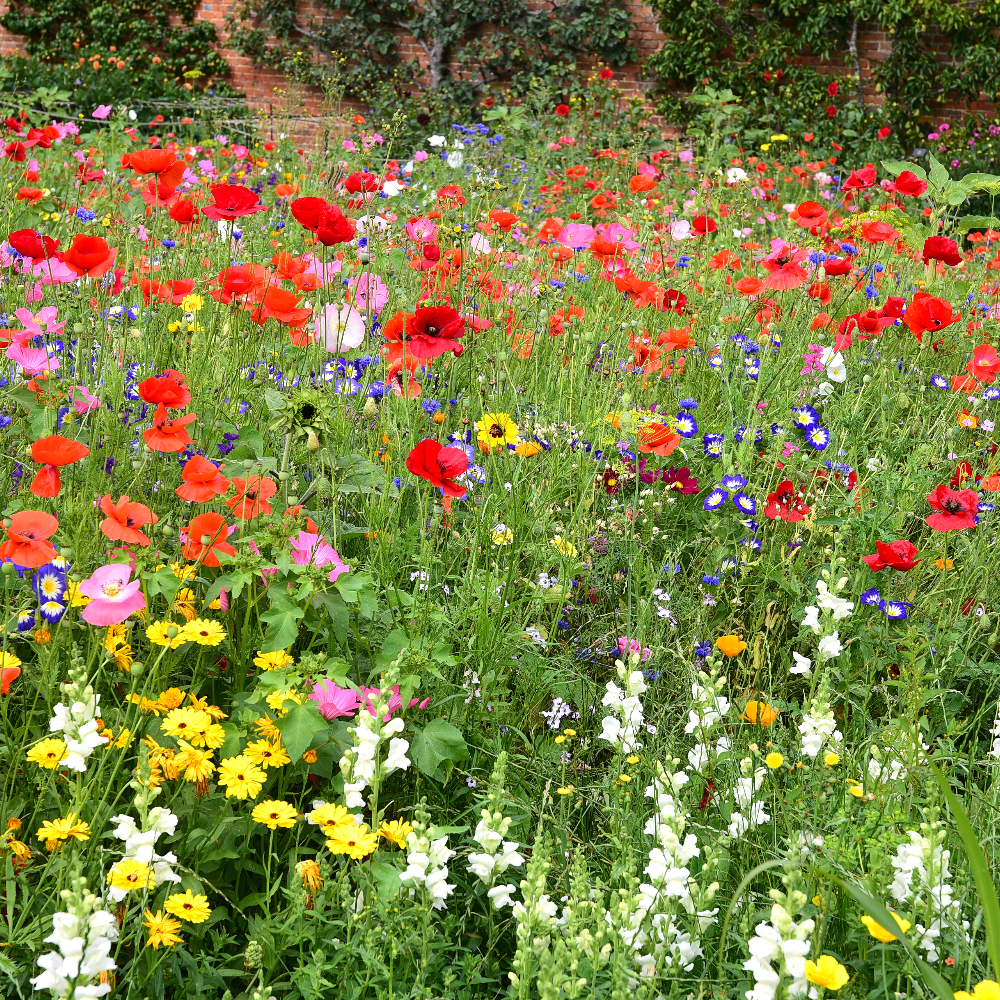Gordon Castle Walled Garden
It’s been five years since my last visit to Gordon Castle. Quite a lot has changed since then. In 2014 the garden had only recently been designed by Arne Maynard.
The basic layout was in place with paths and borders outlined and most of the central vegetable beds were fully stocked and ready for harvest. Some of the earthworks were in place but hadn’t been grassed over. For such a huge garden it looked like there was still an enormous amount to do.
Clearly the gardeners have been busy.
The garden is huge, 200m x 200m, and must have required a an enormous number of staff to keep it going in its heyday. Following the second world war the lack of manpower meant the garden had to be turned over to less intensive agriculture and in the 1950s it was mostly used for growing raspberries commercially.
A restoration programme was begun in 2013 and now the garden employs some 65 people. Clearly some features such as the pear tunnels and grassy mounds will take some time to mature, but the fruit and vegetables and cutting garden areas are thriving.
Even in October there was still lot to see. Although all the fruit from the 249 veteran espaliered fruit trees had been picked some of it was for sale.
The garden supplies produce to the cafe. As garden cafes go this one is excellent and a visit to the cafe gives you a discount for entry to the garden.
A visit to a good garden late in the year gives you a good idea of what will do well locally. The walls here create something of a mini micro-climate allowing a longer than expected growing season. Although in London Dahlias, Gaura and Anthemis might still be in flower this late, Ammi visnaga probably isn’t.
The garden is open all year, pretty much everyday. The cafe is worth a visit on its own, it has not one but two log burners. I imagine they’re both needed in winter. The castle itself is not open to visitors.
If you’re the hunting, shooting, fishing type there’s lots for you here.
Gordon Castle Walled Garden https://www.gordoncastle.co.uk/garden/
The Vyne's Wildflower Garden
The wildflower meadow in the walled garden at The Vyne was born out of need rather than just desirability - there just weren’t enough pollinators to go round. And we all know now that pollinators are needed not just for flowers but for a most of our fruit and vegetables as well.
This is the first year of the planting which is a mixture of annuals and perennials. They are all grown from seed, some sown in situ and others started in the greenhouse and planted out once they’d grown on a bit.
I saw them at the end of July and they looked fantastic. My mother told me they looked even better a couple of weeks earlier but it’s hard to see how. They’ve even stood up well in the record-breaking temperatures of mid-July and the subsequent heavy downpours.
Flowers attract pollinators by offering them pollen and nectar in exchange for fertilisation by travelling from flower to flower. Specific flower types are rich in one or the other or both, and some flowers offer nothing.
Very generally speaking the closer a flower is to its wild beginnings the better it is for nectar and pollen, which is why wildflowers are so beneficial. However, there are also lots of more cultivated varieties which still have something to offer.
Poppies and cornflowers are native wildflowers and pollinators love them. But they also like snapdragons, cosmos and marigolds, none of which are native to the UK. Different shaped flowers attract different types of pollinators; there's a good explanation here - https://www.foxleas.com/flower-shapes.asp.
Flower colour also has a role to play in attracting pollinators. It’s well-known that bright blue flowers attract honeybees and other species have preferences for other colours and scent as well; the scientific research can be read here - https://www.nature.com/articles/srep24408.
Of course we’ve got used to knowing which wildflowers are at their best in high summer, but spring, autumn and even some winter flowering plants are just as important for pollinators - https://www.gardenersworld.com/plants/10-plants-to-help-bees-through-winter-into-spring/.
Although all pollinators are good for our crops and flowers, some are more equal than others. The honeybee can pollinate 80% of our flowers, fruit and vegetables. And almost all honeybees are domesticated, ie they live in hives.
The plight of the British honeybee has been well documented in recent years but the popularity of bee-keeping is helping to check and even reverse this trend. If you’re attracted to the idea of keeping bees get in touch with the British Beekeepers Association - https://www.bbka.org.uk/Pages/Category/what-we-do.
We arrived at The Vyne shortly after opening and I recommend going early to avoid the crowds. The coffee’s not bad and the queue is manageable earlier in the day. However, you do risk the icecream shop not being open…
Despite growing up near here I’ve never been in the house.
The Vyne - https://www.nationaltrust.org.uk/the-vyne
Buy wildflower seeds online - https://wildseed.co.uk/
























